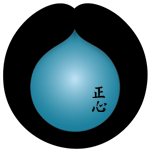Cornerstone Principles of Cheng Hsin
In this work there are at least four basic distinctions upon which we stand. These are neither moral nor arbitrary. They seem to reflect what is simply so and embody the heart of what we are up to in the Spirit and Essence , and Pursuits and Goals of Cheng Hsin.
These four fundamental distinctions set the stage for true inquiry. They are all actually distinctions within the very same movement or pursuit, and so act as cornerstones for this endeavor – Honesty, Not-Knowing and Questioning, Grounded Openness, and Direct and Authentic Experience
Honesty
Honesty is telling the truth, not only to others but to ourselves.
This distinction goes beyond the conventional use of the word to a profound and real experience of being as “rock bottom” honest as we can manage. In this distinction we find that our normal tendency is not one of such powerful honesty — we manipulate our own thinking and feeling, and our experience is so influenced by our beliefs, fears and ambitions that we cannot trust it to represent the “truth” without challenge. We must maintain a diligent probing into the truth of anything that arises — from our ideas on how something works to the nature of relationship and communication. It appears that direct and honest communication leads to powerful interactions and relationships. What is actually occurring is already so, we begin to participate in this when we are honest with ourselves and others.
Not-Knowing and Questioning
Paradox and Confusion are the guardians of the truth.
The truth is often found in unexpected places. How can we experience the truth if we are not open to every possibility? How can we question or wonder without first allowing ourselves an experience of not-knowing? Without the power of questioning, there is only knowing. With only knowing, there is no question and so no growth, no mystery, no learning, no discovery, no insight, and no experience of the authenticity of simply “being.”
Grounded Openness
These are two fundamental principles that we strive to keep in balance.
To be grounded is to be real, to be committed to something, to be clear and standing on solid and authentic insights and effective distinctions.
To be open is to be free, fresh, unstuck, creative, to make breakthroughs, to entertain radical possibilities, to embrace paradox.
The dangers of groundedness without openness tend to be:
- an inability to learn
- becoming dogmatic or closed-minded
- becoming or remaining stuck in a belief system
- never challenging one’s own opinions
- not being able to detect one’s own lies
- having no breakthroughs
- no transformation
The dangers of openness without groundedness tend to be:
- becoming superficial
- being abstract, over-intellectualizing
- adopting fantasies or good ideas as if they are true or as if you have experienced them as real
- not being able to demonstrate or manifest what you are talking about
- not being able to “live” your philosophy
- merely believing in things rather than proving them for yourself
- getting confused or flighty, having nowhere to stand
- not being committed to anything.
As you can plainly see, the issue of balancing groundedness with openness comes up in every form and dimension of our living and our pursuits. The purpose for maintaining such a vigil in these distinctions is to empower our investigations in being as real and as far-reaching as possible.
Direct and Authentic Experience
We are open to the possibility that we can directly experience something.
This is the possibility that we can — without belief, knowledge, conjecture, interpretation, or hearsay — experience the truth of something, beyond subjectivity.
Consistent with our commitment to become directly conscious of whatever is true, we do our best to have the most authentic and genuine experience that we can for ourselves — as opposed to merely believing something or having an idea that it “may” or even “must” be some way.
Since openness and questioning are always at hand in any true inquiry, this distinction represents a “direction” in which to go rather than a “place” at which to stop. However, it also suggests that we are standing at the furthest point possible in our experience at this time, in other words, the most honest and authentic experience we can have in this moment.
It’s important to remember that none of this is meant to be presented as factual to be believed or not. The purpose here is to offer directions and possibilities for your own exploration and investigation. Remember, the pursuit is to question and discover for yourself what is actually so in the matter.
